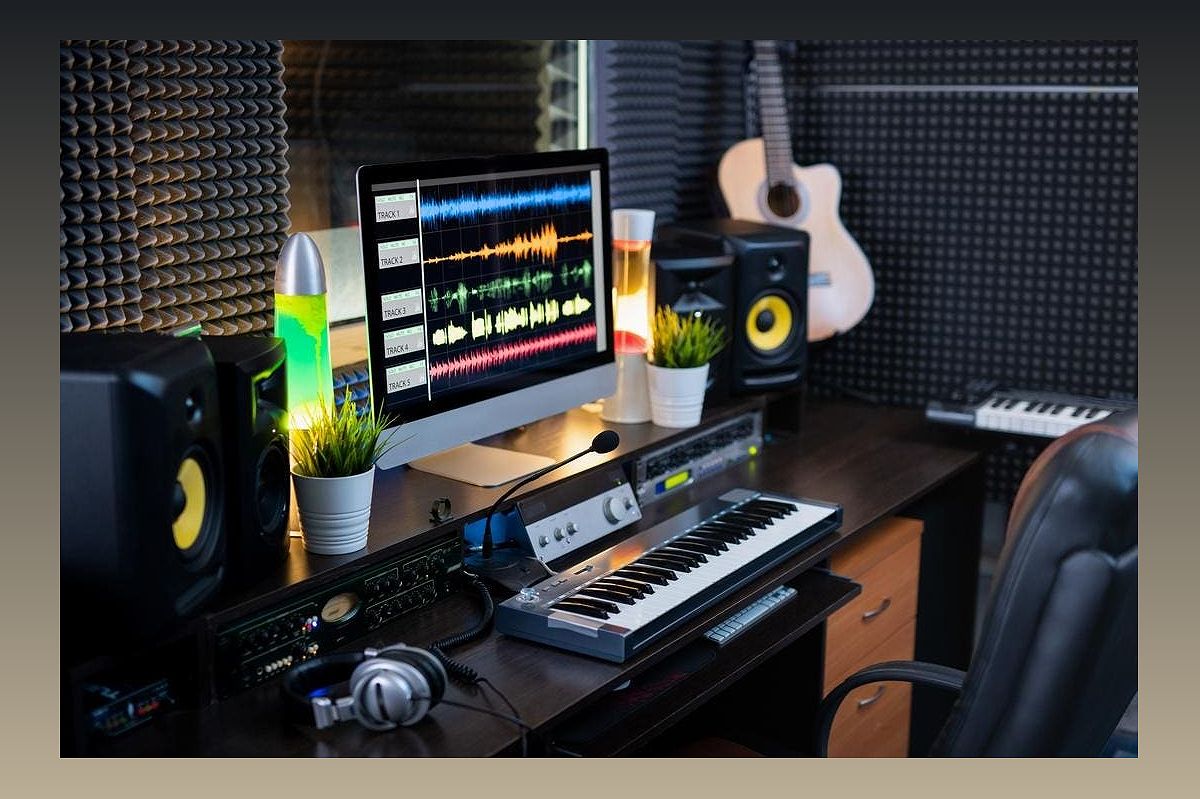In a world where technology and artistry collide, the music industry is undergoing a transformative wave. Artificial Intelligence (AI) is revolutionizing the way music is created, produced, and experienced. From AI-powered songwriting tools to immersive fan experiences, the potential of AI in the music industry is extraordinary. However, along with the opportunities, there are also challenges to address. Let's delve into the impact of AI in the music industry and explore the exciting possibilities it presents.
AI in Music Creation and Production
Explore how AI is revolutionizing the way music is created and produced.
AI-powered tools are transforming the music creation process, enabling musicians to write, record, and mix music more efficiently and creatively. With AI-powered songwriting tools like Amper Music's Songwriter and AIVA, musicians can generate new melodies, chord progressions, and lyrics effortlessly. These tools provide a catalyst for innovation, helping artists refine the structure of their songs using AI-driven arrangement tools like BandLab's Band-in-a-Box and Presonus' Notion.
Moreover, AI-driven virtual instruments and synthesizers, such as IBM's Watson Beat, are pushing the boundaries of sonic innovation. These tools allow artists to replicate traditional instruments or create entirely new sounds, democratizing music production and giving rise to a new wave of artists with access to cutting-edge technology.
Personalized Music Experiences for Fans
Discover how AI is transforming the way fans experience music.
AI is revolutionizing the fan experience by personalizing music listening. Through AI algorithms, platforms analyze user behavior, preferences, and listening patterns to curate personalized playlists, introducing listeners to new artists and genres aligned with their tastes. This level of personalization enhances the discovery process and creates a more engaging music experience.
Additionally, AI and virtual reality technologies are converging to create immersive concert experiences. Artists like Travis Scott have pioneered virtual performances, leveraging AI to create hyper-realistic avatars and interactive environments that transcend physical limitations. These virtual concerts reach global audiences in unprecedented ways, offering a new dimension to the fan experience.
AI's Impact on Music Discovery
Learn how AI is revolutionizing music discovery and introducing listeners to new artists and genres.
AI-powered algorithms are transforming music discovery by analyzing user preferences and recommending new artists and genres. Streaming platforms like Spotify and Apple Music leverage AI to curate personalized playlists and suggest music based on individual listening habits. This not only enhances the listening experience but also provides a platform for emerging artists to gain exposure and connect with new fans.
Furthermore, AI is helping music companies discover new talent. Universal Music Group, in partnership with YouTube, has launched the Music AI Incubator, utilizing AI to identify promising artists and foster collaboration in the music industry. This innovative approach to talent discovery opens doors for aspiring musicians and promotes diversity in the industry.
Challenges and Considerations
Explore the challenges and ethical considerations surrounding AI in the music industry.
While AI brings immense potential to the music industry, it also presents challenges. One concern is the issue of copyright and ownership when AI-generated music becomes indistinguishable from human-created music. This raises questions about the rights and royalties associated with AI-generated compositions.
Detractors of AI in music argue that it falls short of capturing the emotional depth and authentic creativity that characterizes truly compelling music. They believe that AI lacks the ability to replicate the human experience and may lead to a homogenization of music.
As AI continues to advance in the music industry, it is crucial to address these challenges and ensure a balanced approach that leverages technology while preserving the integrity and creativity of music.

